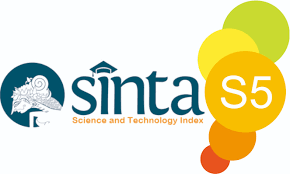Kepemimpinan Transformatif ala Monkey D. Luffy: Penelitian Kualitatif Nilai-Nilai SDGs dalam One Piece
Abstrak
ABSTRAK
Penelitian ini mengeksplorasi representasi kepemimpinan dalam serial anime Jepang One Piece, dengan fokus pada tokoh Monkey D. Luffy serta interaksinya dengan karakter lain dan berbagai konflik. Dengan menggunakan pendekatan deskriptif kualitatif, penelitian ini menganalisis adegan naratif terpilih untuk mengkaji nilai-nilai kepemimpinan, dinamika tim, dan resolusi konflik, berdasarkan pengamatan mendalam terhadap dialog, perkembangan alur cerita, dan momen simbolis yang menyoroti praktik kepemimpinan. Temuan menunjukkan bahwa Luffy merefleksikan secara kuat kepemimpinan transformasional, yang ditunjukkan melalui kemampuannya menginspirasi dan memotivasi orang lain, memberdayakan krunya, serta mendorong persatuan di tengah perbedaan. Gaya kepemimpinan ini menekankan visi, kepercayaan, dan tujuan bersama, sejalan dengan teori modern yang memandang kepemimpinan sebagai relasional daripada hierarkis, dan melalui pembentukan loyalitas serta ketangguhan, Luffy mewujudkan sosok pemimpin transformasional yang mendorong pertumbuhan pribadi, kolaborasi, dan pencapaian kolektif. Namun, nilai-nilai tersebut terus diuji oleh konflik yang berulang dengan pihak Angkatan Laut, yang melambangkan perjuangan lebih luas terkait Tujuan
Pembangunan Berkelanjutan (SDGs), khususnya Tujuan 16 tentang perdamaian, keadilan, dan kelembagaan yang tangguh, sehingga memperlihatkan bahwa kepemimpinan transformasional harus adaptif terhadap resistensi, ketidakpastian, dan ketidakadilan sosial. Penelitian ini menyimpulkan bahwa One Piece bukan sekadar hiburan, melainkan juga sumber pembelajaran kepemimpinan yang relevan bagi konteks organisasi maupun personal, serta menunjukkan bagaimana narasi fiksi seperti anime dapat menjadi media efektif untuk pendidikan kepemimpinanbdan pengembangan karakter dalam dinamika sosial yang kompleks.
ABSTRACT
This study explores the representation of leadership in the Japanese anime series One Piece, focusing on the character Monkey D. Luffy and his interactions with other key figures and conflicts throughout the storyline. Using a qualitative descriptive approach, this research examines selected narrative scenes to analyze leadership values, team dynamics, and conflict resolution within the plot. Data are drawn from in-depth observation of character dialogues, plot developments, and symbolic moments that highlight leadership practices. Findings reveal that Luffy demonstrates core elements of transformational leadership, including inspiring and motivating others, empowering team members, and promoting unity despite differences. However, these leadership values are often tested by recurring conflicts between pirates and the Marine, which reflect broader challenges to achieving Sustainable Development Goals such as peace, justice, and strong institutions. This study concludes that One Piece offers more than entertainment; it provides valuable insights into leadership that are relevant for both organizational and personal contexts. Fictional narratives like anime can serve as effective media for leadership education and character development. This study explores the representation of leadership in the Japanese anime series One Piece, focusing on Monkey D. Luffy and his interactions with other characters and conflicts. Using a qualitative descriptive approach, the research analyzes selected narrative scenes to examine
leadership values, team dynamics, and conflict resolution, with data drawn from close observation of dialogues, plot developments, and symbolic moments that highlight leadership practices. Findings indicate that Luffy strongly reflects transformational leadership, demonstrated through his ability to inspire and motivate others, empower his crew, and promote unity despite differences. His leadership style emphasizes vision, trust, and shared purpose, aligning with modern theories that view leadership as relational rather than hierarchical, and by cultivating loyalty and resilience, Luffy embodies the transformational leader who encourages personal growth, collaboration, and collective achievement. However, these values are continually challenged by recurring conflicts
with the Marine, which symbolize broader struggles tied to Sustainable Development Goals (SDGs), particularly Goal 16 on peace, justice, and strong institutions, thereby showing that transformational leadership must adapt to resistance, uncertainty, and social injustice. This study concludes that One Piece provides more than entertainment; it serves as a meaningful source of lleadership lessons relevant for both organizational and personal contexts, and demonstrates how fictional narratives like anime can function as effective media for leadership education and character development, while illustrating how transformational leadership operates within complex social dynamics.




